Main parties plan binge drinking 'crackdown'
- Published
With months to go until the general election, all the main parties are announcing new plans to crack down on binge drinking and alcohol-related violence in England and Wales.
Stricter controls are already in place in Scotland.
Many of the ideas may never see the light of day but here's how the new plans and policies could change your average night out.
Labour
From April bars and clubs will be banned from offering some "irresponsible" cheap drink deals. That means drinking games, 'all you can drink for £10' and 'women drink for free' deals will be no more.
Competitions like the 'dentist's chair', where alcohol is poured directly into a customer's mouth, will also be against the law.
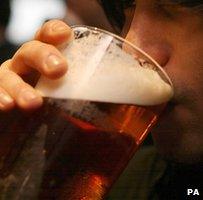
There are already tighter controls on alcohol sales in Scotland
But earlier talk of a complete ban on happy hours and two-for-one deals has been watered down. Both will still be allowed so 'responsible drinkers' are not punished.
Bar staff will also have to make free tap water available if they are asked.
Extra rules due to come in from October will force pubs to check the ID of anyone looking under-18 before they let them in.
It is already illegal to serve alcohol to under-18s and most busy bars already check ages at the door.
It is unlikely this measure will change much in practice but the few bars which deliberately turn a blind eye to underage drinking could have to change their ways.
Bars and clubs will also have to give customers the choice of a small or large glass of wine and a single or double shot.
At the moment some bars serve larger amounts by default.
Conservatives
The main opposition party wants to treble the tax on alcopops meaning the average price of a bottle goes up by an extra 60p. Other tax rises are planned on super-strength beer and cider.
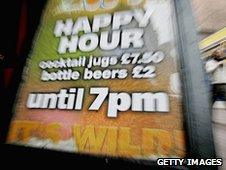
Labour will ban cheap drink deals with the Tories targeting supermarkets
The Conservatives also want to stop supermarkets selling alcohol at a loss.
Some of the biggest chains do this to drum up business, especially when big sporting events like the World Cup are on.
They make the money back by getting customers to buy food and other products along with their beer, wine and alcoholic drinks.
Stricter rules on licensing are also planned, giving local authorities greater powers to turn down requests to set up new pubs and clubs.
Venues in 'binge drinking hotspots' may be forced to pay a special tax to fund extra police patrols and security in the area.
Liberal Democrats
Unlike Labour and the Conservatives, Britain's third largest party is not officially setting out its policies to tackle binge drinking this week.
But we already know the Liberal Democrats favour a new law to increase the price of very cheap alcoholic drinks.
Under the plan, bars, clubs and, especially supermarkets would have to charge a set minimum amount per unit of alcohol.
The measure is supported by England's chief medical officer and the chief executive of the Royal College of Nursing.
But the larger two political parties say 'minimum pricing' would punish responsible drinkers.
It may also be illegal under EU law, although it has never been tested in court.
Liberal Democrats in the Scottish parliament do not support minimum pricing.
In Scotland
The Scottish government has already brought in some measures to tackle problem drinking and violence.
'Irresponsible' drink promotions have been banned including two-for-one and buy-one-get-one-free offers not covered by Labour's new plans in England and Wales.
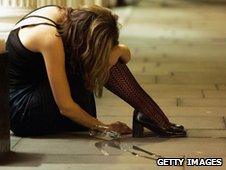
Tap water is always available free at pubs and bars across Scotland
As in England, pubs and clubs are forced to make free tap water available.
Supermarkets and off-licences have to display all alcohol products in one designated area - in other words no champagne alongside strawberries or beer alongside barbecue chicken.
The ruling Scottish National Party also supports a minimum price for alcohol in Scotland.
But Labour, Conservative and Liberal Democrat MSPs have all said they will block the plans if they come to a vote.
The SNP does not have an overall majority in the Scottish parliament making it unlikely, as things stand, that the proposals can become law.
- Published18 January 2010
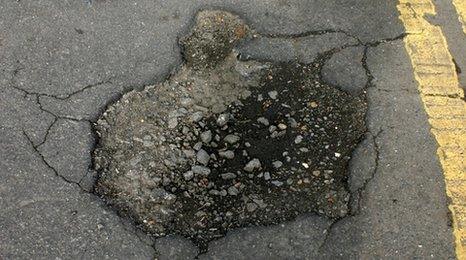
- Published12 January 2010
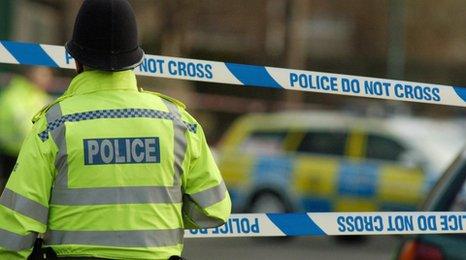
- Published14 July 2009